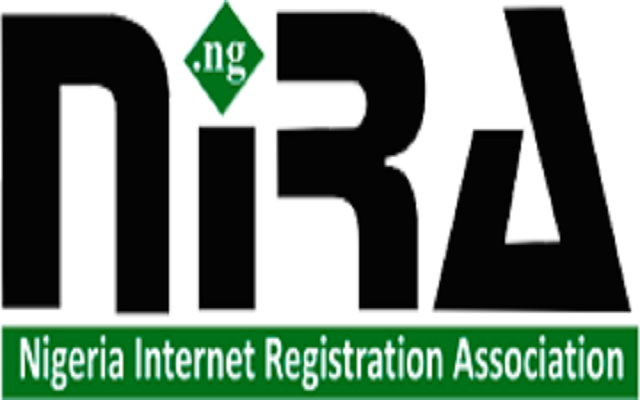- NiRA Moves to Deepen Domain Name Registration
Worried about the low rate of domain name registration in Nigeria, which stood at less than 100,000 registrations as at December 2016, the Nigeria Internet Registration Association, the body managing the country’s domain name registration, is considering new strategies in 2017 that will raise the consciousness of Nigerians to register with the country code Top Level Domain name, (ccTLD), the .ng domain name, which is Nigeria’s identity in cyberspace.
The new strategies, according to the President of NiRA, Reverend Sunday Folayan, would be part of the activities to extend the reach and increase the registration of .ng this year and provide opportunities to NiRA accredited registrars and to registrars of other ccTLDs.
He said NiRA is on the verge of signing Memorandum of Understandings (MoUs) that will provide opportunities for NiRA accredited registrars to have access to the registries of other ccTLDs in Africa without undergoing the accreditation process of those ccTLDs. The accredited registrars of these ccTLDs would also have the opportunity to access the .ng registry.
“NiRA Academy will also set up an Internet Protocol version 6 (IPv6) laboratory with African Network Information Center (AFRINIC) at NiRA office complex, and the plans include improving on the infrastructure for doing business, using the .ng domain name,” Folayan said.
Another strategy to populate the .ng domain name, which he said is in the pipeline, is the second edition of the NiRA .ng Awards, to further appreciate excellence and innovation for those online using .ng domain names.
“In a couple weeks, we shall rollout the plans at a press conference and modalities for nominations and voting. The 2nd edition of .ng Awards would hold by the 21st of April 2017. We expect active participation of our stakeholders in the nomination exercise and voting process,” Folayan added.
Nigeria’s .ng domain name registration, however, moved up slightly by 3,236 in September last year, and by additional 3,483 registrations in October last year bringing the total number of registered domain names in the country to 77, 776 as at October 2016, according to the statistics released by NiRA.
Although there were few thousands of registrations in November and December last year, the total number of registered .ng domain name as at December last year, fell short of 100,000.
Folayan, in his monthly release late last year, gave details of domain name registration for the months of August, September and October. According to him, “Domain Name registrations and renewals at the registry have steadily increased on month per month basis and year per year basis, even though the increase is at a slow pace.
The domain names registered and renewed in September 2016 was 4,915, which is more than twice the registration in September 2014, that was 2,370 and far more than the registration in September 2015, that was 3,322, Folayan said in one of his reports.
A breakdown of the figures, show that in August 2016, Nigeria recorded 3,007 domain name registrations with 1,567 renewals and 118 transfers, while in September 2016, Nigeria recorded 3,236 domain name registrations with 1,679 renewals and 43 transfers. In October, Nigeria recorded 3,483 registrations, with 1,823 renewals and 81 transfers.
As at July 2016, the total number of .ng domain names registered in the country in the last 10 years, was 68,050, but with the additional registrations by the registrars in the months of August, September and October last year, the figure rose to 77,776 .ng domain registrations as at October 2016.
In technical parlance, domain name which could be country code Top Level Domain name (ccTLD) or generic top level domain (gTLD), is the identity of individuals and organisations in cyberspace. For anyone to have access to internet activities privately, the individual must register with a domain name that represents a country. For instance, Nigeria’s domain name in cyberspace must have the suffix .ng, Canada is .ca, South Africa is .za, United Kingdom is .co.uk, among others.


 Forex2 weeks ago
Forex2 weeks ago


 Naira2 weeks ago
Naira2 weeks ago
 Billionaire Watch2 weeks ago
Billionaire Watch2 weeks ago




 Naira2 weeks ago
Naira2 weeks ago




 Naira2 weeks ago
Naira2 weeks ago




 Naira4 weeks ago
Naira4 weeks ago


 Naira6 days ago
Naira6 days ago
 Banking Sector4 weeks ago
Banking Sector4 weeks ago





















